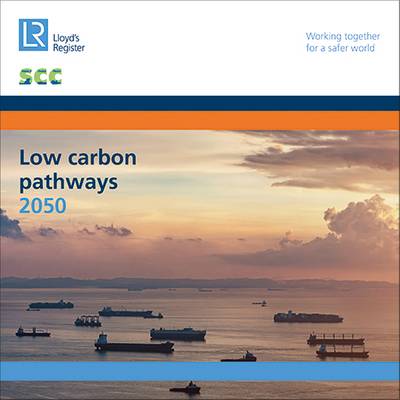LR, SCC Release Low Carbon Pathways 2050 Study
The report underlines the need for shipping to start its decarbonization imminently – as stringency increases over time, increasingly high-cost mitigation steps are required. The later we leave decarbonization, the more rapid and potentially disruptive it will be for shipping.
The greenhouse gas (GHG) emissions of shipping are a consequence of the carbon intensity of shipping’s energy supply, the energy efficiency of shipping and the demand for shipping. The Paris Agreement confirmed that it was not a question of whether climate change should be addressed but a question of how, and it was clear that everyone will have to contribute.
Shipping currently accounts for 2.33% of global CO2 emissions and there will be no space in the carbon budget to allow even the emissions of shipping (currently approximately 1 Gt per annum) to be ignored.
The International Maritime Organization (IMO), agreed at the 69th session of the Marine Environment Protection Committee (MEPC) to establish a working group to discuss the matter further at MEPC 70 from 24–28 October 2016. There are a number of submissions to MEPC 70 on this subject and we all expect important discussions to take place on how this issue is to be progressed.
Low Carbon Pathways 2050, presented by Katharine Palmer, LR’s Environment and Sustainability Manager, and Carlo Raucci of the Shipping in Changing Climates project, aims to contribute towards these discussions by providing understanding on the potential pathways to the decarbonization of the global shipping industry. Consistent with the Paris Agreement, the report gives particular focus on the technological and operational specifications of the global fleet and how these may change in relation to a given rate of decarbonization.
The report asks the question: given the best available evidence, what is a reasonable estimate of how shipping might be required to change and what does this look like?
Three future scenarios for this initial study for the period 2015–2050 were identified to demonstrate varying options for decarbonization. The first, High Hydrogen, considers the availability of hydrogen, which is used in fuel cell technology, to demonstrate what can be achieved through technology and innovation. The second, High Bio, assumes a mid-range market penetration of biofuels in the shipping industry, and the third, High offsetting, considers the impact of a market-based mechanism. These three future scenarios are compared to a business as usual (BAU) scenario with existing regulatory commitments.
Key findings of the study include:
- Shipping will need to start its decarbonization imminently – as stringency increases over time, increasingly high-cost mitigation steps are required. The later we leave decarbonisation, the more rapid and potentially disruptive it will be for shipping.
- All are ‘possible’ options for achieving absolute reductions of a scale and timeliness consistent with the Paris Agreement.
- A substitute for fossil fuel will still be required as energy efficiency improvements alone will not be sufficient in the medium to long term.
- Energy storage in batteries and renewable energy sources will have important roles to play, but are likely to still leave a requirement for a liquid fuel source.
- Additional regulations that may be developed for other emissions need to be considered, for example; methane, black carbon and particulate matter.
- Technological and operational characteristics are just some of the considerations that need to be taken into account.
Katharine Palmer, LR’s Environment and Sustainability Manager, commented: “There are many issues to debate as the industry tries to consider what the strategy might be for handling the simultaneously inevitable and uncertain changes ahead. What is clear is that any future regulation needs to provide the right incentive to drive the change needed and we hope that business strategies and consistent policies can be combined to reduce shipping emissions.”
Carlo Raucci of the Shipping in Changing Climates project added: “Clearly many questions remain and will need further thought and consultation. But at least this study makes clear that we need to advance thinking beyond marginal gains in energy efficiency and alternative fossil fuels if we are to identify the sector’s least cost decarbonization pathways.”
Following this initial study, LR and SCC will convene industry roundtable discussions on the findings of the report and facilitate the development of future possible scenarios in collaboration with the industry to create and share knowledge and tools that can contribute to reducing GHGs from shipping.
Low Carbon Pathways 2050 is the latest in LR’s series of reports looking at fuel and technology trends for the marine industry, aimed at developing new knowledge and tools that can contribute to policy debate. Previous reports include Global Marine Trends 2030, Global Marine Fuel Trends 2030 and Global Marine Technology Trends 2030.













